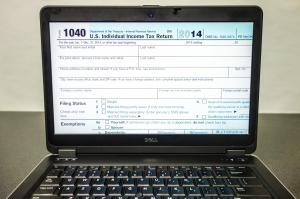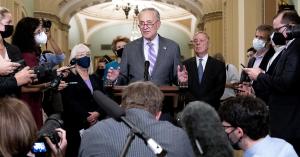The upcoming stimulus check lawmakers are currently working on comes with one significant difference from its predecessor: its source. This past March, the U.S. Congress did some fast maneuvering to make sure the CARES Act’s stimulus check came out quickly. With the new HEALS Act, the United States Senate has not yet taken the same steps.
The unprecedented economic relief packages passed during the coronavirus pandemic have required some financial juggling that can look confusing from the outside. As explained in a Forbes report, the first stimulus check was technically an advance on a new 2020 tax credit, which was codified into law at the same time. This allowed the IRS to prepare and send the checks immediately, and so far, the agency has not been given the same permission in the new HEALS Act. If this law is not replicated and implemented, it is not clear how the stimulus checks could reach Americans, even if the law is passed.
Videos by PopCulture.com
The Senate and Congress have their horns locked over the HEALS Act — the new coronavirus relief plan written by the office of Senate Majority Leader Mitch McConnell. It would provide another stimulus check worth up to $1,200 for qualifying American taxpayers, but so far the two legislative bodies are stuck on the other aspects of the bill. Presumably, their negotiations would include legal authorization for the IRS to prepare and distribute those checks, but so far nothing is written in stone.
Many Americans are wary of the stimulus check, as it is an unprecedented form of direct financial aid. While it is a tax credit, it will not affect recipients’ future taxes in any tangible way. It will not impact their tax refunds in 2021, nor will it need to be paid back.
Instead, the stimulus check was designed as a type of rebate, which was paid in advance. Experts say it will have no impact on any federal benefits, including Social Security, state-based unemployment or other programs.
Right now, Congress is insisting that the HEALS Act be revised to extend the $600 emergency unemployment bonus before they pass the bill. However, McConnell and other Republicans are opposed to this plan. Other aspects of the bill are in contention as well, such as the COVID-19 liability shields McConnell wrote for business owners.
Trump decided to support an executive order by signing four actions on coronavirus relief Saturday, one of which will present as much as $400 in enhanced unemployment benefits after Democrats and the White House were unable to reach an agreement on a stimulus bill this week.




